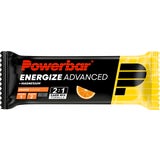Performance Update for the Brain
In recent years there has been a flood of offers to improve the performance of the brain. The offers capitalize on a vast number of different challenges. Often a large part of this marketing strategy relies on fear. Here's what really helps.
Basically it can be said that cognitive skills can be trained. Thus, age-related mental deterioration can be counteracted. Until a few years ago, it was still believed that the brain itself, once developed, no longer changed. Now we know that the brain and the nervous system are flexible well into old age. Not only are they flexible, they are adaptable and trainable.
Studies always take a long time, otherwise they are not meaningful. That is also the reason that there is not much data available to support offerings designed to improve brain performance, like jogging, pills or the like. Often personal history comes into play. Finally, some people naturally have better mental health at a more advanced age than others. Following are the best tips and tricks on how to keep and improve brain performance.
- The basic requirement per se for a powerful brain is getting enough sleep. Only when you're really rested, can you do your cognitive best. Nowadays more and more people are sleeping too little. The individual need for sleep is indeed different, but you should sleep at least six hours per night.
- The brain also needs the proper nutrients to function properly. Pills can possibly increase performance, but this is always temporary. For a longer-term effect, a proper diet is more effective. A varied and balanced diet with plenty of fruits and vegetables ensures that the brain is supplied with the materials it needs. The most important rule of thumb: drink plenty of liquids. Getting enough liquid ensures sufficient oxygen supply of the head and body. At least half a liter to preferably two liters of liquid should be drunk per day. The best liquids are water and unsweetened tea.
- To concentrate for a long time to work, a decent supply of iron, vitamins B1, B2 and E and folic acid is also important. This can by obtained through long-chain carbohydrates like whole grains. Multiple unsaturated fatty acids are also important. Nuts, fatty fish, canola oil and walnut oil should therefore regularly appear on the menu. Since the brain can not create reserves of these materials, it is dependent on the supply of nutrients from the blood. For this reason it is important to consume food regularly, at best five times a day.
- Regular breaks during mental work maintain the performance. In addition, you should create a balance, reserving daily time for recreation. A walk is advisable as it stimulates the transport of oxygen to the brain. This is crucial for performance.
- Becoming a lifelong learner is also important. Learning is very effective brain training, so put your curiosity to use! It does not matter what you learn, but languages are particularly good.
Each time you learn something new, new synapses are "connected" in the brain. In addition, someone who is open to new ideas can enjoy many unexpected pleasures. Through new experiences, new synapses are created.
For situational better performance, here are a few tricks:
- Formulated objectives are very concrete in that they not only motivate, they help you concentrate. If you have a huge task ahead of you, you should divide it into stages and re-formulate the objectives. Take small, focused steps so you do not lose track of where you are.
- Sincere interest can work wonders. Actual interest makes learning far easier. Always ask yourself: "what can I gain from this?" Or, "how will this help me in the future?"
- Eliminating concentration killers and distractions is extremely effective. In order to achieve the optimal concentration, the brain requires some time. If you are engrossed in a task and are distracted by something (such a ringing phone) it will take up to ten minutes to get into the subject again.
-
Tip Number 1 must therefore be: turn your phone off.
-
Eliminate any other interference and noise sources. If this is not possible, sound protection can be useful.
-
Clean up your desk. Disorder leads to lack of concentration because you are constantly distracted by the things lying around.
- Sports and movement are key to staying mentally healthy. There are now dozens of studies that confirm their positive effects on the brain. Through sport, the brain grows. Thus, people who do aerobic exercise regularly have significantly more brain tissue in certain areas than people who do not play sports. The result is an increased mental performance. Through regular exercise, the brain is better supplied with oxygen, because the circulation is increased. In addition, other biochemical substances are transported better. Physical activity promotes the formation of new synapses and consolidates existing connections.
In this sense: get moving!
Latest reviews
-
 5.0 (8)
5.0 (8)Alnatura Organic Beetroot Juice, 1 l
Bestseller- Juice from organic beets
- Naturland quality
- Vegan
€ 2,49 (€ 2,49 / l)Delivery by February 03
-
 4.0 (4)
4.0 (4)Powerbar Energize Advanced, Orange (55 g)
-20%- Juicy & guaranteed not sticky
- With sodium & magnesium
- 2:1 carbohydrate ratio (glucose & fructose)
€ 2,23 € 2,79 (€ 40,55 / kg)Delivery by February 03
-
 3.5 (4)
3.5 (4)Powerbar Protein Plus Fibre, Raspberry Yoghurt (35 g)
- Protein-rich snack
- Low in sugar
- Practical for on the go
€ 1,59 (€ 45,43 / kg)Not available at the moment
-
 5.0 (2)
5.0 (2)Sponser Sport Food High Energy Bar, Berry (45 g)
- With carbohydrates
- Made in Switzerland
- Enriched with additional protein
€ 2,29 (€ 50,89 / kg)Delivery by February 03
